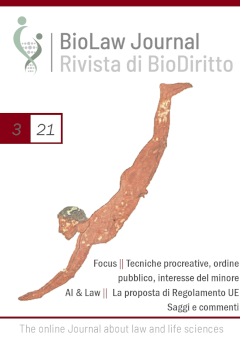Futile treatment in the time of pandemics
DOI:
https://doi.org/10.15168/2284-4503-1796Parole chiave:
COVID-19, ethics, futility, pandemics, public health, triageAbstract
Health care delivery is traditionally based on three basic ideas: i) it is better to provide more care than less; ii) once a patient is granted a medical resource, it cannot be taken from him/her unless it becomes unnecessary; iii) medical resources are distributed in accordance with priority on arrival. Sometimes, these principles lack proper legal/ethical ground, but in practice there are frequently followed criteria in many hospitals. Under normal circumstances, and assuming that there are enough healthcare resources available for everyone, this modus operandi works with few issues in light of ethics and public health consideations. However, the COVID-19 pandemic has led to an entirely new scenario, with new methods required for patient triage and new strategies needed to avoid medical futility. This paper will sustain that the main criterion to allocate resources and triage patient of scarce health resources – such as in this pandemic – is the efficiency of the treatment. Furthermore, it underlines that fighting against medical futility becomes essential in these times.





